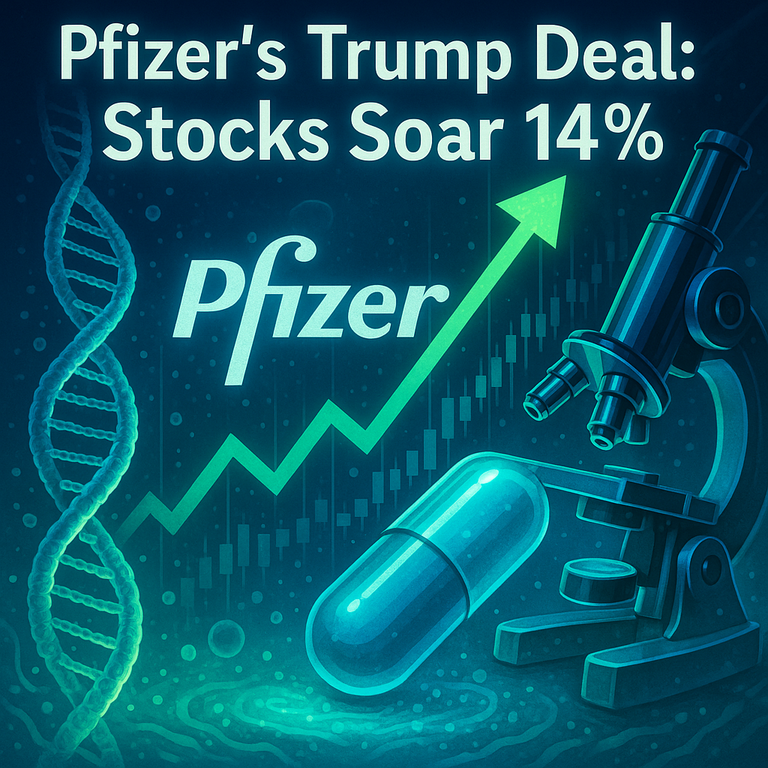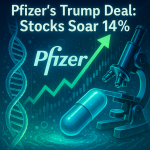💡 In exchange, Pfizer pledged to invest $70 billion in U.S. manufacturing and R&D and adopt “most favored nation” pricing for Medicaid drugs.
💊 This deal is expected to boost both U.S. biopharma leadership and lower drug prices. Investors are optimistic about Pfizer’s future growth.
Introduction:
The article discusses Pfizer’s strategic deal with the Trump administration, which resulted in a significant stock price surge for the company. This agreement centers around a three-year exemption from proposed tariffs in exchange for Pfizer committing to increase U.S. manufacturing, research and development, and adopting a “most favored nation” (MFN) pricing strategy for certain drugs. This move not only promises to bolster Pfizer’s market position but also sets a precedent for the biopharma industry as it navigates pricing and regulatory challenges.
- Pfizer’s stock surged by 14% following the announcement of a deal with the Trump administration that exempts the company from 100% tariffs for three years.
- The company will invest approximately $70 billion in U.S. manufacturing and R&D, although specific projects have not been detailed.
- Pfizer committed to applying MFN pricing, ensuring that U.S. drug prices will be comparable to those in other developed nations, with significant discounts offered through a new direct purchasing platform.
- The agreement alleviates the tariff threat that had loomed over Pfizer and the broader biopharma sector, allowing the company to focus on developing new treatments.
- Despite overall industry support for the initiative, major biopharma organizations like PhRMA have not endorsed the deal, raising concerns about the implications of MFN pricing on access to treatments and R&D investments.
Conclusion:
This agreement between Pfizer and the Trump administration represents a significant strategic move that enhances Pfizer’s market position while addressing pricing pressures and manufacturing concerns. However, the mixed reactions from industry leaders suggest ongoing debates about the long-term impact of such policies on drug pricing, patient access, and innovation in the biopharma sector. As Pfizer seeks to solidify its future growth, focus on pipeline advancement will be crucial, especially as some of its major drugs face impending losses in exclusivity.



